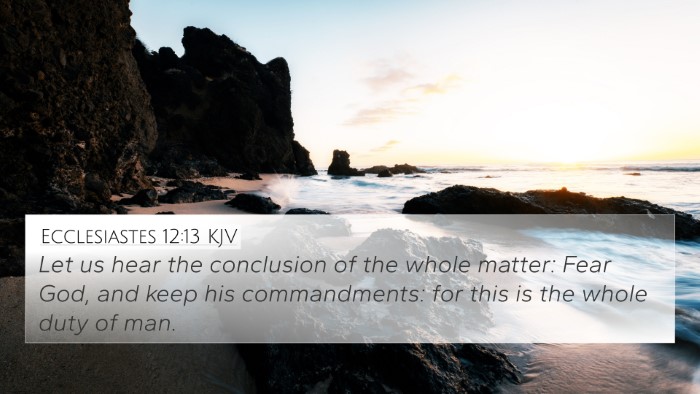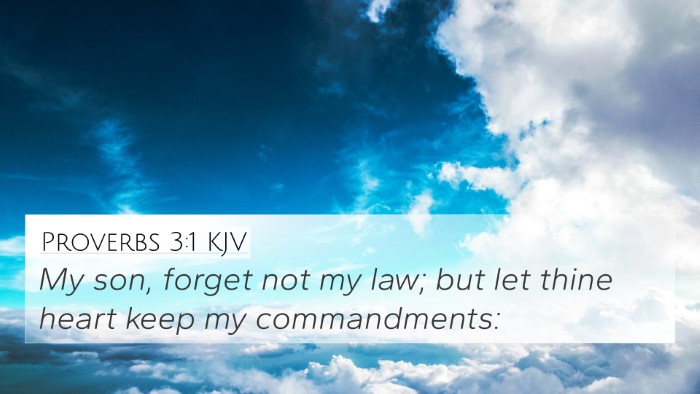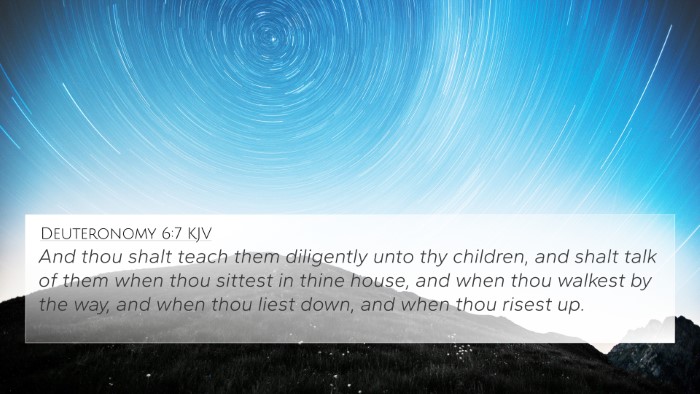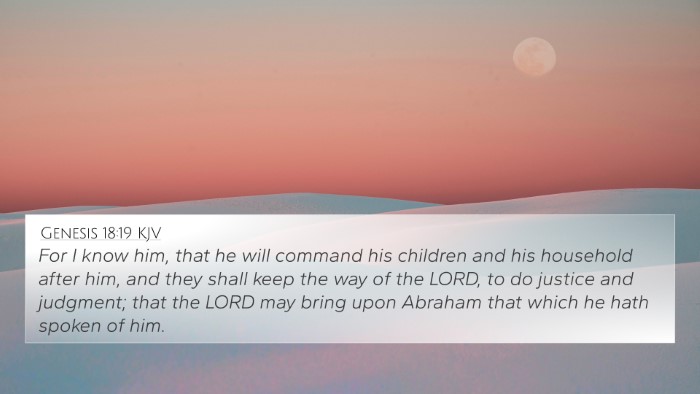Understanding Deuteronomy 6:2
Deuteronomy 6:2 states:
"That thou mightest fear the LORD thy God, to keep all his statutes and his commandments, which I command thee, thou, and thy son, and thy son's son, all the days of thy life; and that thy days may be prolonged."
This verse emphasizes the importance of fearing God and obeying His commandments as a means to ensure a long and fruitful life. Below is a summarized interpretation combining insights from public domain commentaries.
Interpretation and Meaning
Fear of the LORD: The fear mentioned here is not about terror, but rather a deep respect and reverence for God. Matthew Henry explains that this kind of fear leads to obedience and a desire to adhere to God's will. Albert Barnes adds that this fear is the foundation of true wisdom and knowledge.
Obedience to Commandments: The command to keep statutes and commandments highlights a relational aspect with God, underscoring that His commandments are for the benefit of His people. Adam Clarke notes that a strong emphasis is placed on the necessity of teaching these commands to subsequent generations, ensuring a legacy of faith.
Generational Responsibility: The phrase "thou, and thy son, and thy son's son" indicates the continuity of faith across generations. Spiritual leaders, according to Matthew Henry, are responsible for imparting knowledge of God’s laws, creating a community grounded in faith and obedience.
Prolonged Days: The concluding promise of prolonged days serves as both a blessing and a motivation. According to Adam Clarke, this prolongation can be interpreted not merely as physical longevity but as a fulfilling and meaningful life.
Cross-References
Deuteronomy 6:2 can be connected to several other passages that reinforce its themes:
- Exodus 20:12 - Honors the connection between honoring parents and longevity of life.
- Proverbs 1:7 - Emphasizes the fear of the Lord as the beginning of knowledge.
- Ecclesiastes 12:13 - Concludes that fearing God and keeping His commandments is the whole duty of man.
- Matthew 4:10 - Jesus reinforces the idea of worshiping and serving God alone.
- 1 John 5:3 - States that loving God involves keeping His commandments.
- Psalms 91:16 - Speaks of God's promises of long life to those who love Him.
- Joshua 1:8 - Encourages meditation on God’s law for success and prosperity.
- Ephesians 6:2-3 - Reinforces the commandment to honor parents with a promise of long life.
- Proverbs 3:1-2 - Assures that keeping God’s commands leads to a long and peaceful life.
- Hebrews 12:28 - Calls for reverence and godly fear in worshiping God.
Connections Between Bible Verses
Deuteronomy 6:2 serves as a theological anchor, linking various biblical themes through the following connections:
- Thematic Bible verse connections regarding fear of the Lord and obedience.
- Cross-referencing Biblical texts that share commands and promises to God’s people.
- Comparative Bible verse analysis between Old Testament law and New Testament teachings of Christ about obedience.
- Inter-Biblical dialogue on the importance of legacy in faith through generational teachings.
Tools for Bible Cross-Referencing
To delve deeper into cross-references, consider using the following resources:
- Bible Concordance: Helps find verses that share common words or themes.
- Bible Cross-Reference Guide: Useful for noting parallels between scriptures.
- Cross-Reference Bible Study: Methodology to explore biblical accounts in relation to each other.
- Bible Chain References: Links verses together for deeper exploration of themes.
Conclusion
Deuteronomy 6:2 serves as a reminder of the covenant relationship between God and His people. Through reverence, obedience, and a commitment to pass on faith through generations, individuals can experience and share the protective blessings of God. Cross-referencing this verse enriches the understanding of a biblical mandate that transcends time, fostering a pattern of life that is long-lasting and fulfilling.

























